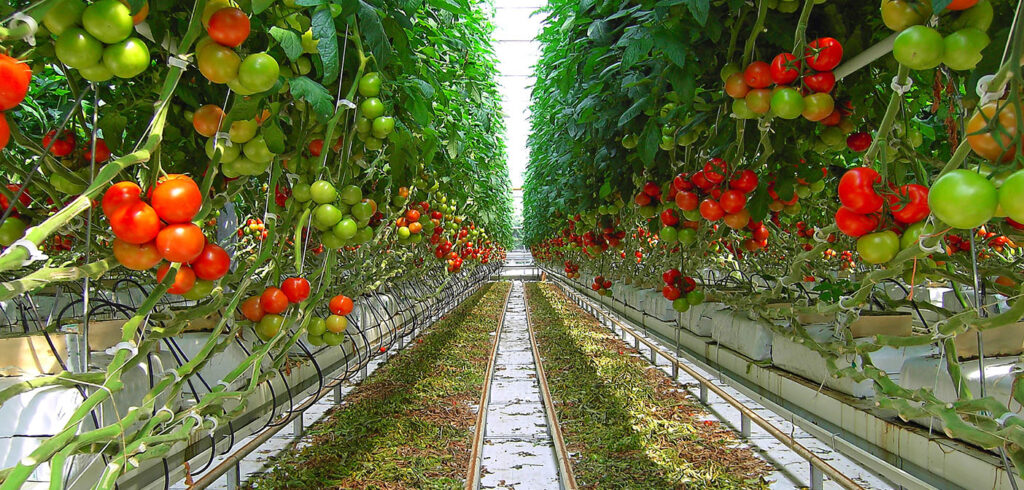A study conducted by NovaCropControl has found Moleaer’s oxygen-enriched nanobubbles improve root health, nutrient uptake, and ultimately tomato size while maintaining nutrient density.
An industry-leading research and testing centre based in the Netherlands, NovaCropControl independently evaluated the impact of chemical-free nanobubble enriched irrigation water on tomato fruit growth, pathogen control, and nutrient uptake. In a side-by-side study, NovaCropControl irrigated plants with technology provided by Moleaer, a global leader in nanobubble technology.
It found that plants irrigated with Moleaer’s nanobubbles had more efficient nutrient uptake and water usage; improved capillary root development; increased resilience to high heat; and reduced Pythium levels of up to 80%.
The study also showed plants irrigated with Moleaer nanobubble-enriched water produced a 9% increase in fruit weight without sacrificing nutrient content or BRIX value (grams of sucrose).
Tomatoes provide a rich source of vitamins A, C, K, and minerals, including iron and phosphorus, making them one of the most popular and valuable crops grown in greenhouses.
Moleaer’s patented nanobubble technology is installed at over 200 horticulture facilities, enabling growers to enhance existing irrigation water, promote beneficial bacteria, suppress pathogens and diseases, and increase nutrient uptake, according to the company.
These results are achieved by providing a consistent flow of nanobubbles to the plant’s roots to maintain high oxygen levels in irrigation water and deep water culture (DWC) systems. Increased root zone oxygenation through nanobubbles increases plant nutrient uptake. The outcome is healthier, more resilient plants, increased crop yields, and decreased time to cultivation.
“We know that improving water quality through increasing sufficient oxygen levels are important for plant health and crop resilience. Our trial confirmed that Moleaer’s oxygen-filled nanobubbles are a very efficient method of delivery,” said Koen van Kempen, consultant, NovaCropControl Research Center.
“Nanobubbles are a complex science, but this latest third-party research demonstrates in the simplest of terms the value nanobubbles provide to our food supply by enhancing water quality, without using chemicals, to improve plant health and resilience to environmental stress, which ultimately leads to increased crop yields,” added Nicholas Dyner, CEO of Moleaer.
Moleaer’s nanobubble technology is used in all sorts of settings to reduce the growth of pathogenic micro-organisms and algae blooms in water, whilst cutting the use of algaecides and chemicals. Nanobubbles can help improve water quality in farm irrigation systems, dirty water treatment tanks, fish farms and natural water sources like reservoirs. The company has also recently launched a new real-time water quality and equipment remote monitoring service.



